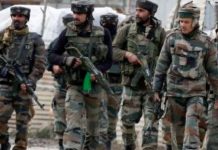India has betrayed both maturity and sagacity by stonewalling the demand of the West to formally blame Russia for the Ukraine conflict at G-20
It is 2023, not the year 1945. The erstwhile European colonial powers, now being re-branded as the epitome of democracy and human rights under the US-leadership, appear to be clinging to the 78-year old colonial narrative. In a bid to retain their pre-World War-II hegemony, they refused to sign a joint communiqué at the G-20 meet of foreign and finance ministers, unless Russia is condemned for the Ukraine War.
India being the rotational head of the G-20 forum for 2023 had been trying for the past several months through backdoor diplomacy as well as sometimes openly, that if the West was so keen to rake up the conflicts erupting in various part of the world on this forum of economic cooperation, why it did not raise the Iraq, Libya and Yugoslavia issues during the past decades at G-20 conferences.
There was little surprise during the recently concluded G-20’s high profile meeting in Bangalore and New Delhi, about the American and European media’s bias against India on this issue, but there was dismay in the South Block, the headquarters of the External Affairs Ministry (EAM), that Indian media presented the ‘refusal of India and China’ as a symbol of cooperation between the two Asian giants. They did not care to explain why the West did not invoke the peace process at various international forums for ending the one-year old avoidable Russia-Ukraine War.
Instead of the noisy Indian news channels or print media known for their ‘press-note ‘ journalism, the Russian Foreign Minister, Sergey Lavrov, meticulously dismantled West’s ‘illogical stubbornness’ at the Raisina Dialogue (March 2-4), held on the sidelines of the G-20 meetings.
The high-profile Raisina Dialogue symbolises the seat of Indian establishment, as the most of the key ministries are housed on the hilly terrain of the Raisina Hills. The two-day interactive dialogue was a joint venture of India’s think tank, Observer Research Foundation (ORF), a Reliance Industry outfit, having support of India’s Ministry of External Affairs (EAM), and some American and Chinese foundations.
Lavrov appeared to be in his best of humour, when the ORF chairman, Sanjay Joshi, a former joint secretary in the Petroleum Ministry, asked him, “Could we be meeting in next year’s Raisina Dialogue.” He quipped with his usual smile in affirmative asking him to get a few more searching questions to be asked from the Americans. It was quite devastating for Joshi, a career civil servant who could have mastered the art of seeking or manipulating cushy assignments but possessed little experience of geo-politics or foreign affairs. He looked pathetic at the high table with the Russian FM.
Joshi alone cannot be blamed for his inability to comprehend the key issues of geo-politics. He was pampered by Ambanis, perhaps for his ‘good conduct’ during his tenure in the petroleum ministry, and in recent years by a section of the mandarins in the EAM. He also got himself anointed with academic credentials by some American think tanks and universities, but his mentors both in the corporate, EAM and American academia could not substitute the hard experience needed for such tasks in diplomacy.
The Wolf Warrior Diplomacy
With the emergence of China in world politics as an important power in recent years, the Chinese have been pursuing ‘wolf warrior diplomacy’, a departure from the traditional concept of evolving relationships with other countries wrapped in sophisticated elegance. It is confrontational and combative. Maybe Lavrov’s frank observations at the dialogue were like the Wolf Warrior. A seasoned Indian diplomat has quietly confided that Lavrov’s was not only ‘undiplomatic’, and thus overwhelming Joshi, a gentleman.
The West’s urge to retain its supremacy in the world geo-strategic and geo-economic affairs is reflected in the refusal to endorse the G-20 document. The West got a fresh lease of its hegemony during the 1990s with the collapse of the USSR. It was natural for NATO to be dismantled following the end of the Cold War, but the American industrial-military complex prevailed upon the successive administration not to end the military alliance, and thus pre-Cold War rivalries have resurfaced, perhaps, much more intensely .
These days, the national media is abuzz with observations that India does not want to undermine her past association with the USSR or she is scared of a large-scale Chinese invasion on her northern borders, but both electronic and print media ignore the key element of the issue; that G-20 is not a forum for settling borders and conflicts. Indian PM Narendra Modi’s efforts of reinvigorating North-South cooperation is rooted in the original concept of G-20. However, the refusal of these erstwhile colonial powers to sign joint communiqué negates the efforts of decades of sincere efforts of economic cooperation.
The weakening of the G-20 might become a catalyst for reinvigorating BRICS (Brazil, Russia, India, China and South Africa). It means that the vast business opportunity awaiting the war-torn Europe is being lost. The saner elements comprising civil societies across the continents have bemoaned that yet another opportunity for peace was lost, but China’s strongman, Xi Jinping, as usual smiled. “The buffoons in the Whitehouse have given his country the resource-starved countries, including the vast lands of Eurasia on a platter,” confides a former Indian diplomat to this writer.
China’s Double-speak
Being aware of the double-speak of Beijing, whether it was ‘Panchsheel’ or its leaders talking about peace, India and China were seen together in refusing to condemn Russia in the ongoing European conflict. It is believed that Russians are aware that the new dose of the Chinese financial assistance estimated to be more than a billion USD to Pakistan is being promptly used by Pakistan to speed up loading of explosives to the Ukraine-bound ships via German ports.
Amidst the Chinese policy of holding with the hare while running with the hounds, India has betrayed both maturity and sagacity by resisting the demand of the Western powers to formally blame Russia for the conflict at G-20. She has also been ‘cool’ to the US suggestion that India should float a new peace plan in response to China’s proposed ceasefire plan already with Ukraine.
There are discussions among foreign affairs experts, whether PM Narendra Modi has invoked the 68-year old concepts of the ‘Panchsheel’ or non-aligned movement, which was initiated in April 1955. The representatives of as many as 29 governments of Asian and African nations had gathered in Bandung, Indonesia to discuss peace and the role of the Third World in the Cold War, economic development, and decolonization. The process of giving recognition to these impoverished countries has again begun from the soil of Indonesia. The venue this time was Bali, about nine hundred kilometres from Bandung, when India assumed the presidency of G-20.
Modi’s stress on the economic developments of the Global South reminds veteran Indian diplomats about the non-alignment movements. Interestingly, during the fifties, the USA was opposed to this idea and now it feels that Modi is not behaving like a leader of a satellite state. The recently released American documents, which were archived, reveal that the then PM Jawharlal Nehru’s initiative for peace at the Bandung Conference was taken as a Communist tilt of the countries of Asia and Africa, now again Modi might face the American wrath. Earlier, President Trump was heard expressing his disquiet that “India does not abide by us”.
The Chinese peace proposals, which are yet to be made public, are believed to be rooted in the Five Principles of Peaceful Co-existence. It is also incorporated in the preamble to the Chinese constitution. They are mutual respect for each other’s territorial integrity and sovereignty, mutual non-aggression, mutual non-interference in each other’s internal affairs, equality and co-operation for mutual benefit, and peaceful co-existence. It was a part of the Sino-Indian Accord, but it did not prevent China from invading India in 1962 or quietly funding and training insurgents in her north-eastern states.
The mankind, thus, continues to be facing unprecedented ‘trust-deficit’ among nation states and even within alliances. The G-20 could have ushered in a peace process, but the opportunity was lost.













